For most upper-level courses, the prerequisite is six credits of second-year English, third-year standing, or by permission of the instructor. See prerequisites for individual courses.
Fall 2023
| Course | Course Description | Degree Requirement | Professor |
|---|---|---|---|
| 300 | Backgrounds to English Literature | Literature and Tradition, pre-1700 | Lane |
| 304 | Advanced Professional Writing | University Writing | Doughty |
| 312 | History of Critical Theory | Literature and Criticism | Carpentier |
| 330 | Topics in Speculative Narrative | Literature and Culture | Burgoyne |
| 331 | Topics in West Coast Literature | Literature and Culture | Moosa |
| 333 | Topics in Post-Colonial Literatures | Literature and Culture | Stephens |
| 340 | Topics in Medieval Literature | Literature and Traditions, pre-1700 | Masson |
| 394 | Topics in Television Narrative | Word and Image | Masson |
Spring 2024
| Course | Course Description | Degree Requirement | Professor |
|---|---|---|---|
| 327 | Topics in World Literature | Literature and Culture | Moosa |
| 329 | Topics in Children's and Young Adult Literature | Literature and Culture | Doughty |
| 334 | Topics in Canadian Literature | Literature and Culture | Smith |
| 344 | Topics in Shakespeare | Literature and Culture, post-1900 | Crover |
| 346 | Topics in 17th-Century Literature | Literature and Tradition, pre-1900 | Atkinson |
| 350 | Topics in 19th-Century Literature | Literature and Traditions, 1700-1900 | Burgoyne |
| 392 | Topics in Digital Humanities | Word and Image | Watkins |
| 398 | Film Studies | Word and Image | Armstrong |
| 480 | Research Methods | Literature and Criticism | Finigan |
Note: Any course descriptions or reading lists here are tentative. Check back for updates.
Course Descriptions: Fall 2023
ENGL 300: Backgrounds to English Literature
Professor Richard Lane
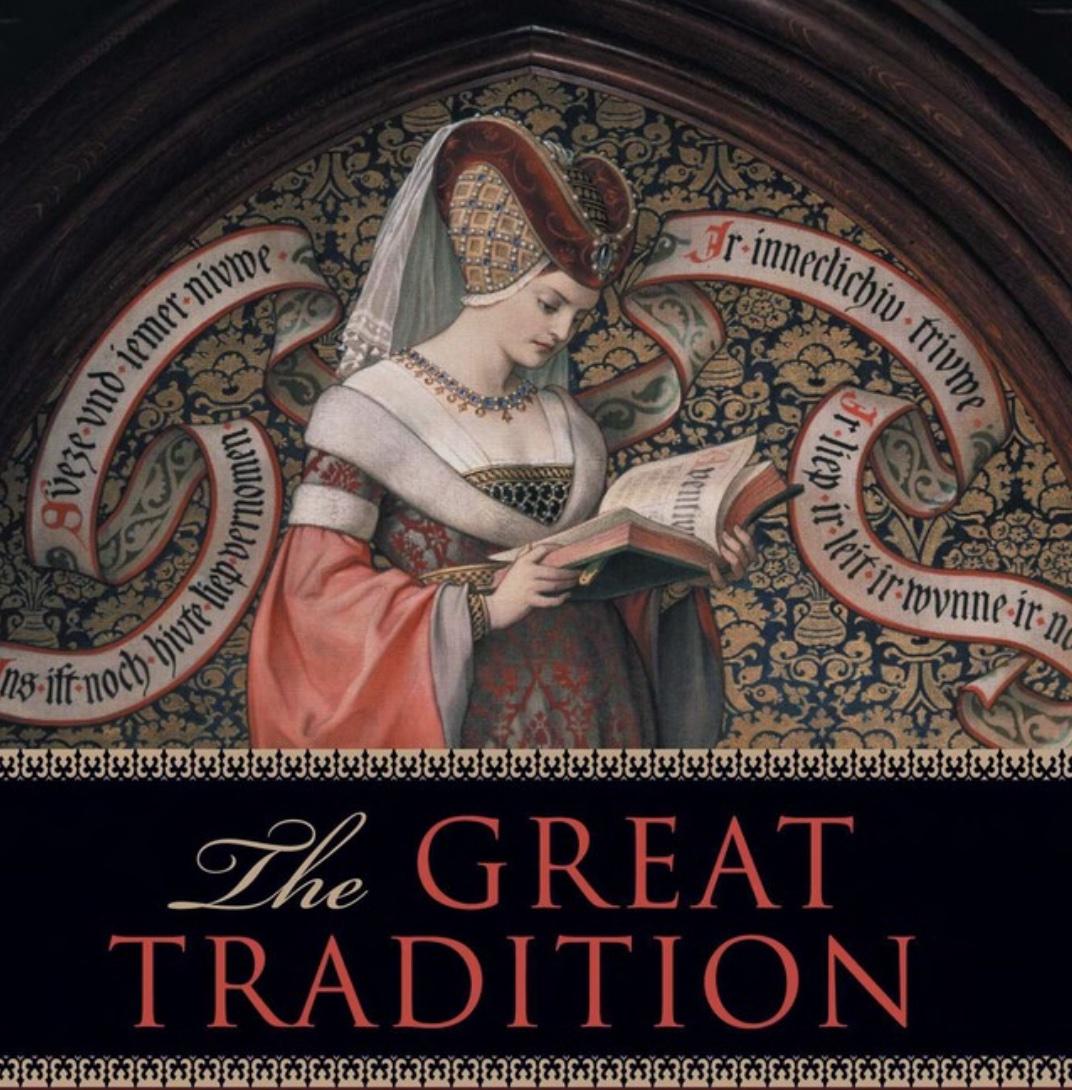
Revisiting the Great Tradition: The Persistence of the Western Canon
Contemporary writers, media and games designers, graphic artists, and beyond, draw deeply on the texts of the Western canon, sometimes “writing back” against the canon, sometimes creatively incorporating and redesigning it, and sometimes simply replacing it with new ideas and directions. Why did the famous English critic F.R. Leavis use the phrase “The Great Tradition” for canonical English novelists? Why do so many writers and artists continue to go back to the Western canon? When did this tradition begin? What was it all about? Has it now ended? We will sample some of the canon’s core texts, answer these questions, and then look at how contemporary Canadian authors such as Ondaatje incorporate—and write back against—the canon.
ENGL 304: Advanced Professional Writing
Professor Terri Doughty

This course is designed as a bridge between the world of school and the world of work. It provides an opportunity for you to build an e-portfolio of writing you can use in your post-graduate job search. The course will comprise some lecture content but mostly discussion and workshopping. We will explore case studies to review standards of professionalism, discuss ethics in research and professional communication, and consider the role of chat bots in professional writing. Among your assignments, you will do a term project on grant application writing and a community-based writing assignment that will involve completing a writing project for a local non-profit organization or business. No matter what your professional interests are, you will be able to shape assignments to fit them. There is not an assigned textbook for the course, but if you do not already have one, you may want a good general guide to business communication.
This course will be delivered in an in-person format.
ENGL 312: History of Critical Theory
Professor Sally Carpentier
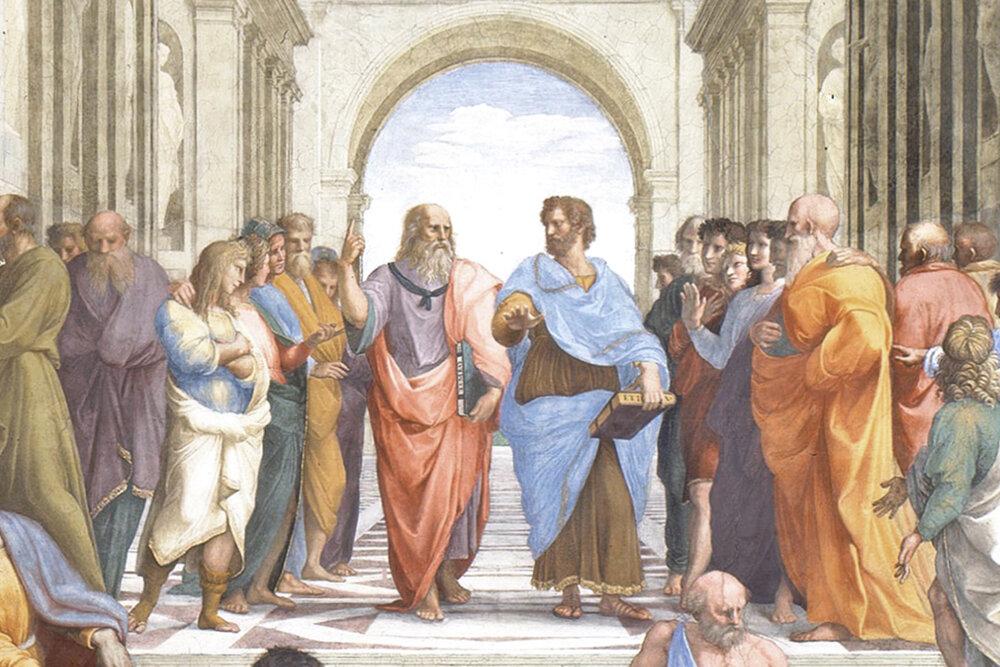
This course will survey the major theoretical statements of literary critics and aestheticians from Plato to the Moderns. It will concern itself with broad theoretical issues and the underlying assumptions of various critical discourses. In moving from the Greeks to the Moderns, it will demonstrate the interrelationship between poetics, politics, philosophy, and art. In deepening a student’s understanding of the history of criticism, the course will examine the changing nature and definition of both literature and criticism.
ENGL 330: Topics in Speculative Narrative
Professor Daniel Burgoyne
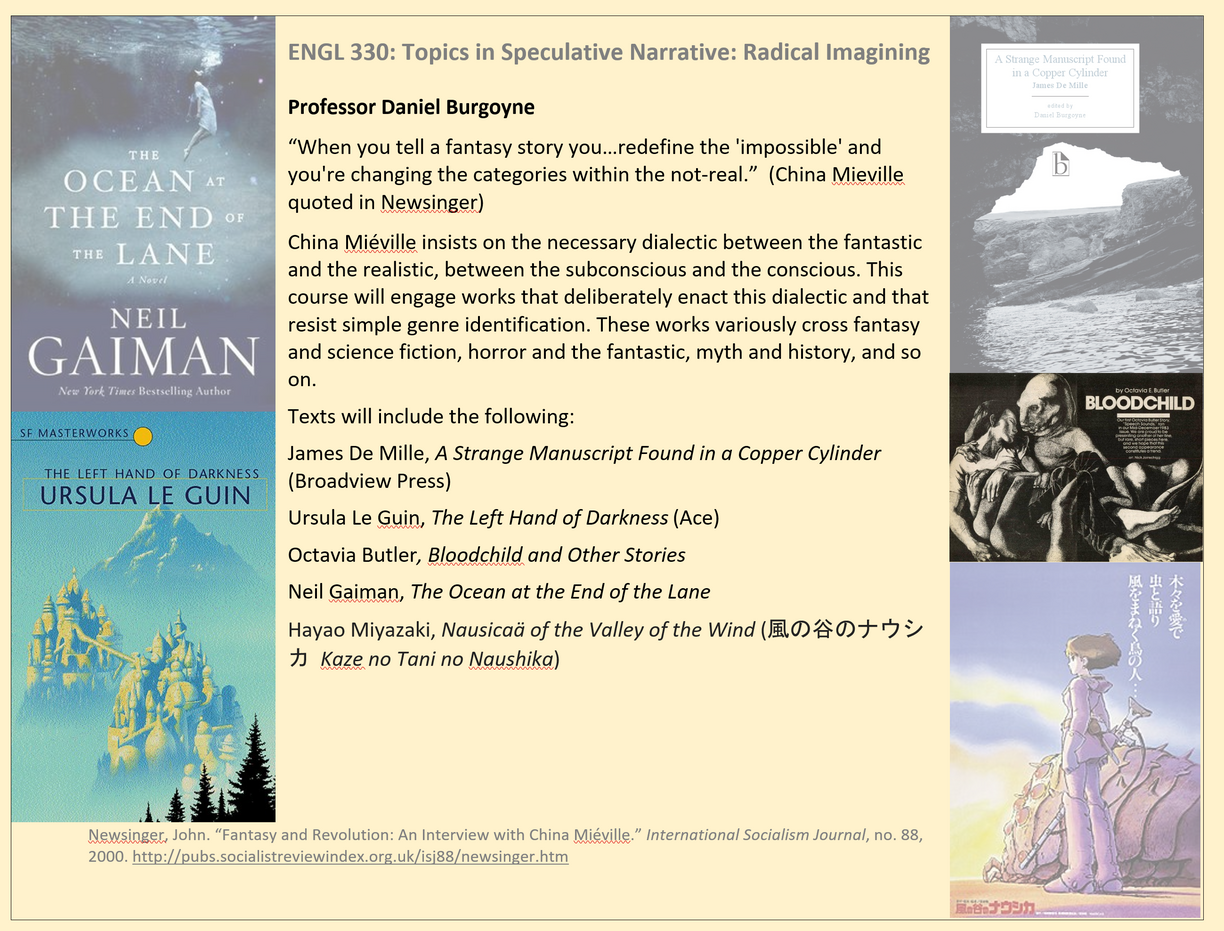
ENGL 331: Topics in West Coast Literature
Professor Farah Moosa
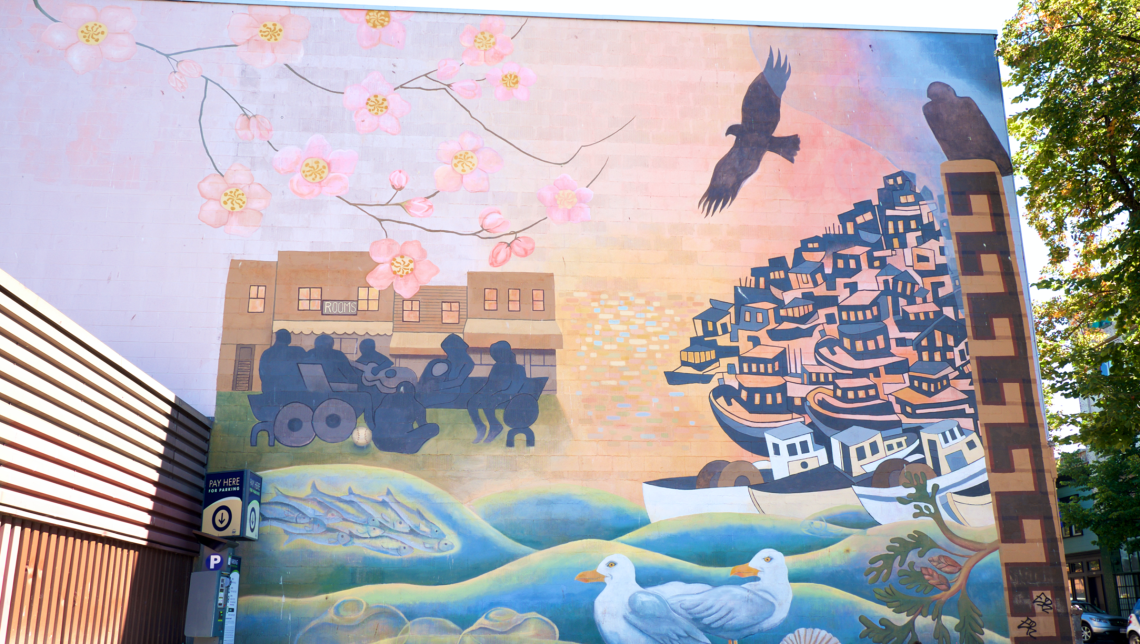
Joey Mallett and Rita Buchwitz’s Celebrating Community (2011) mural on Powell Street, Vancouver, BC. Photo credit: Raymond Kam, 2017.
In this course, we will read new, as well as classic, BC literary works that are concerned with historical and cultural legacies. These works prompt us to consider the histories and cultural legacies that we inherit and to explore our own.
Drawing on current debates in memory, CanLit, indigenous, and diaspora studies, we will discuss issues of colonialism, multiculturalism, gender, sexuality, race, and class. As our authors deal with histories and cultural legacies that are lesser known, we will also think about what our texts offer a local and national audience who may or may not be familiar with their subject matter.
Texts may include Daphne Marlatt’s ground-breaking novel Ana Historic (1988), Sky Lee’s extraordinary family saga Disappearing Moon Cafe (1990), and selected poems from Renée Saklikar’s powerful collection, children of air india: un/authorized exhibits and interjections (2013).
ENGL 333: Topics in Post-Colonial Literature
Professor Melissa Stephens

“It is debilitating to stay in such toxic spaces: disciplinary formations, colonial archives, disciplinary methods”
- Keguro Macharia, “Black: Beyond Negation”
“Post-colonial” is a troubled and troubling concept. It has been interrogated by writers, artists, and activists seeking to move beyond a resistance or resilience mode of existence towards truer forms of freedom, invention, or decolonization.
This course explores some of the challenges of anti-colonial thinking in contributions by Black writers to post-colonial literatures, theories, and cultures. A consideration of historically marginalized experiences in these contexts will be a priority in our discussions and studies, but so will a focus on the problems of “black negation” (Macharia). We will cover texts produced in African and African Diasporic contexts (including Black British, Caribbean, and American contexts) to better grasp the global migrations of post-colonial debate.
Throughout the term, we will strive to be mindful of the emotional labour and the physical risk involved in anti-colonial, anti-racist, and anti-oppression movements, as we identify how the work of anger, mourning, joy, and celebration have become vital to Black post-colonial literary traditions.
ENGL 340: Topics in Medieval Literature
Professor Cynthea Masson
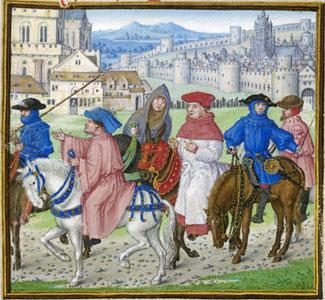
By the end of ENGL 340 you will have gained not only a new appreciation for medieval literature but a skill you can use to impress your friends—you will be able to read Chaucerian verse aloud. Try it now:
A knyght ther was, and that a worthy man,
That fro the tyme that he first bigan
To riden out, he loved chivalrie,
Trouthe and honour, fredom and curteisie. (General Prologue 43-46)
Alongside our practice of Middle English, we will examine the plots, themes, genres, and characters of several Canterbury Tales. To contextualize our readings, we will discuss aspects of medieval England, including political and religious beliefs. Assignments will include translation tests, a research paper, a midterm exam, and a final exam. Depending on the number of students enrolled, creative presentations about Chaucer and his works (or, alternatively, dramatic recitations of Chaucerian verse) will be a component of participation.
REQUIRED TEXT
Chaucer, Geoffrey. The Canterbury Tales. Edited by Robert Boenig and Andrew Taylor, 2nd ed., Broadview, 2012.
ENGL 394: Topics in Television Narrative
Professor Cynthea Masson
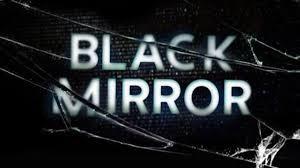
According to a New York Times review, “Black Mirror is hands down the most relevant program of our time, if for no other reason than how often it can make you wonder if we're all living in an episode of it” (Poniewozik*). Given recent world events and the necessary shift of our lives to a multitude of online environments, that statement may resonate more emphatically with us now than it did when originally penned. Thus, the Fall 2023 iteration of ENGL 394 will focus on the critically acclaimed, award-winning, technology-focused, dystopian science fiction television series Black Mirror. Each week, participants will watch one episode, read (at least) one scholarly article, and prepare assigned exercises for discussion. Course content emerging from the conjunction of episodes and articles will include topics such as technology and the body; digital cultures; narrative structures; audience agency; and various facets of television studies. Episodes will not be screened during class; students will be expected to access and watch scheduled episodes on their own time. Class time will comprise a combination of lectures, discussions, and peer-centred workshops. If online delivery is scheduled, class time will be divided between asynchronous video lectures and synchronous discussion-based workshops.
*Poniewozik, James. “Black Mirror Finds Terror, and Soul, in the Machine.” New York Times (Online), 20 Oct. 2016.
TEXTS
A list of the required episodes and articles will be provided within the official course outline. For now, here are a few examples of potential weekly episode/article pairings:
- “Be Right Back” / Sarah Artt (2018), “‘An Otherness that Cannot Be Sublimated’: Shades of Frankenstein in Penny Dreadful and Black Mirror.”
- “Hated in the Nation” / Andreas Graee (2020), “Swarming Sensations: Robo-bees and the Politics of the Swarm in Black Mirror.”
- Bandersnatch / Nada Elnahla (2020), “Black Mirror: Bandersnatch and How Netflix Manipulates Us, The New Gods”
Course Descriptions: Spring 2024
ENGL 327: Topics in World Literature
Professor Farah Moosa

In this course, we will read contemporary world literature that deal with themes of war, love, and resiliency. The stories we encounter are beautiful and captivating, though they also speak of difficult pasts, presents, and/or futures. As such, we will consider what makes difficult stories readable.
Texts include Arundhati Roy’s The God of Small Things (India), Mohsin Hamid’s Exit West (Pakistan), and Chimamanda Ngozi Adichie’s Half of a Yellow Sun (Nigeria). We will also watch Biyi Bandele’s film adaption of Adichie’s novel.
Drawing on current debates in memory, trauma, and diaspora studies, we will also discuss issues of empire, migration, displacement, class, race, and gender. As many of our texts have won major international awards, we will also think about what makes them prizeworthy.
ENGL 329: Topics in Children's and Young Adult Literature
Professor Terri Doughty
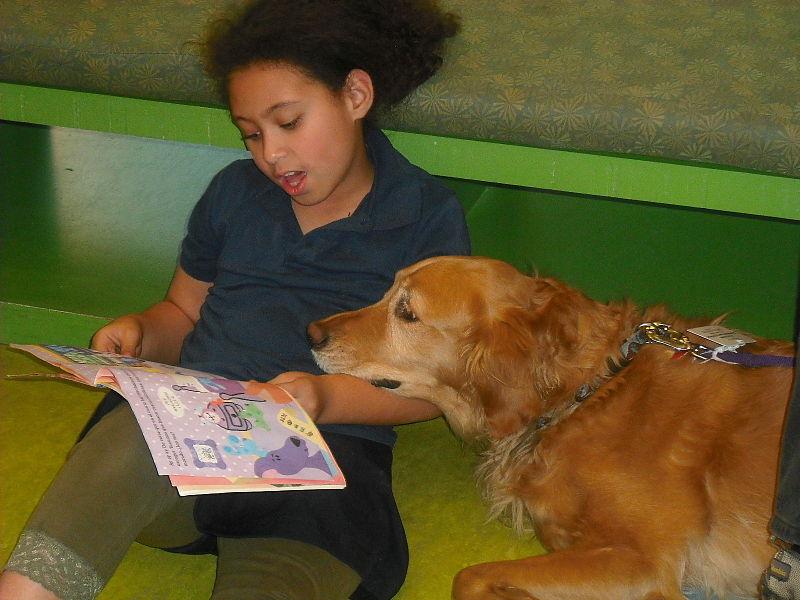
Multispecies Entanglements and Kinship in Young People’s Literature
This semester we will focus on Children’s and Young Adult Literature in the Anthropocene. When lands are burning, sea levels are rising, catastrophic weather events are more common, and species are disappearing, it is important to ask where we can find hope for the future. We will consider the ways in which children’s and young adult literature can provide models for making kinship between the human and the more-than-human, as well as suggest strategies not just for surviving dystopias but thriving in equitably shared, sustainable worlds. We will read a range of picturebooks, graphic narratives, and novels by classic authors and illustrators such as Elsa Beskow and Frances Hodgson Burnett in addition to newer creators like Julie Flett, Michael Nicoll Yahgulanaas, and Shaun Tan.
This course will be delivered in blended asynchronous format.
ENGL 334: Topics in Canadian Literature
Professor Toni Smith
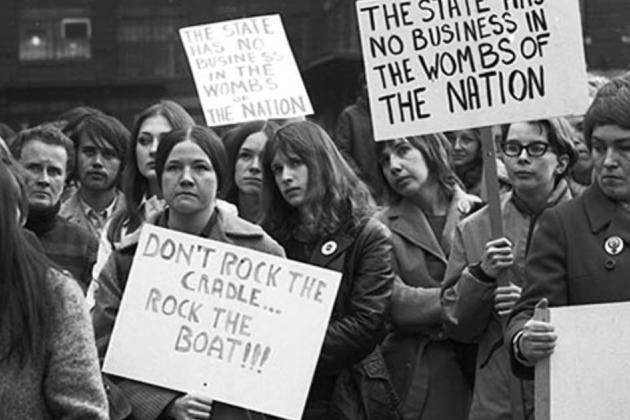
Canada in the 1970s!
High inflation; a polarized political climate that erupts into riots, marches, conflicts with the police, and incidents of domestic terrorism; activists fighting for equal rights for all regardless of race, gender, or sexual orientation; a movement among young people to live off-grid and work toward self-sufficiency spurred by fears about industrial impacts on the environment and high global oil prices… These aren’t today’s headlines, but those of the 1970s! In Canada, we can add to that list the nationalist movement in Quebec, Indigenous activism and arts fighting for visibility and treaty rights, the Cold War threat of nuclear war, and a changing sense of national identity to be more inclusive of the many immigrant groups that had shaped the country.
The 1970s were a transformational decade in Canada and in Canadian literature, launching the careers of some of our most influential writers: Margaret Atwood, Margaret Laurence, Timothy Findley, Austin Clarke, Thompson Highway, Michael Ondaatje and many more. Join us to learn about this important era whose issues mirror our own so closely.
The delivery method for this course will be Online Asynchronous.
ENGL 344: Topics in Shakespeare
Professor Sarah Crover

Shakespearean Stewardship: The Good, the Bad, and the Ugly
In the early modern period, husbandry, or what we would consider today “stewardship,” was just as likely to be related to “the administration and management of a household; domestic organization,” as it was to gardening and land management (OED). Thus, any examination of household management in the period necessarily presupposed wider questions about nation and governance of the land. William Shakespeare’s era, much like our own, produced unsettled and unseasonable weather, crop failures, disease, food shortages, and an unpredictable socio-economic climate in early modern England. As a result, Shakespeare was writing during a time of great anxiety about what it meant to be a good steward on both the local and the national level. This course will examine the link between bad stewardship, environmental (both “natural” and human-caused), and political catastrophe in seven plays across the full range of genres Shakespeare employed: comedy, history, tragedy, and romance. Plays under consideration may include Richard II, A Midsummer Night’s Dream, King Lear, The Tempest, The Merry Wives of Windsor, The Winter’s Tale, and Antony and Cleopatra. This course aims to give students a comprehensive understanding of the historical context of the plays and a critical introduction to the theoretical discipline of ecocriticism.
ENGL 346: Topics in 17th-Century Literature
Professor Anna Atkinson
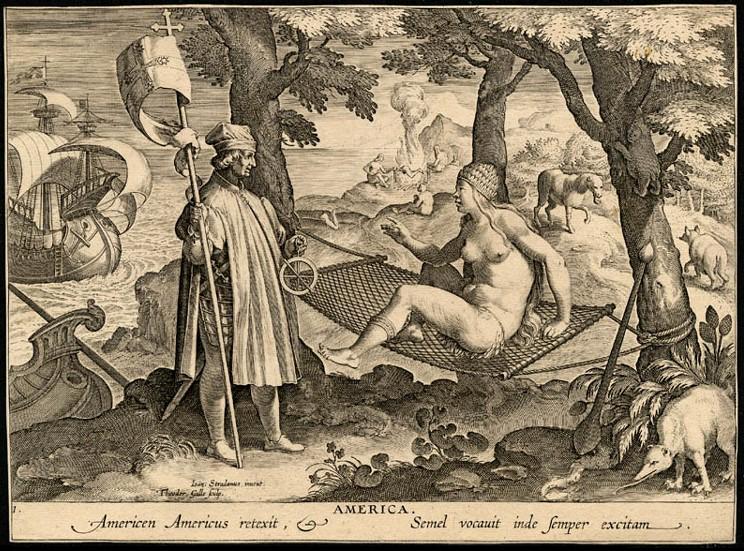
Marrying “America”: Gender, Ideology, and the Rhetoric of Colonization
The word “America” appears in quotation marks in the title of this course for good reason. The name given to this continent comes from one of the family names of Vespucci Amerigo. Early cartographers claimed he had “discovered” America before Columbus; certainly Amerigo argued that what he had “found” was indeed “new” land, and not a part of Asia.
Attaching a family name to a possession—particularly one supposed to bring riches and become fertile and productive—would have been suggestive of marriage in the early Renaissance. Certainly the metaphor of marriage was played out over and over in the literature of early colonialism. However, it relied for its effectiveness on the notion that the land was “virginal”: unoccupied and unowned.
This course interrogates that metaphor, and looks at the role of language and ideology in the process of colonialism. We will critically examine narratives from both European colonizers and First Nations people, and will introduce modern theorizations about language and colonialism. We will also look at twentieth- and twenty-first-century interpretations of these early writings and metaphors, and examine the extent to which colonial language still informs “American” ideology.
ENGL 350: Topics in 19th-Century Literature
Professor Daniel Burgoyne
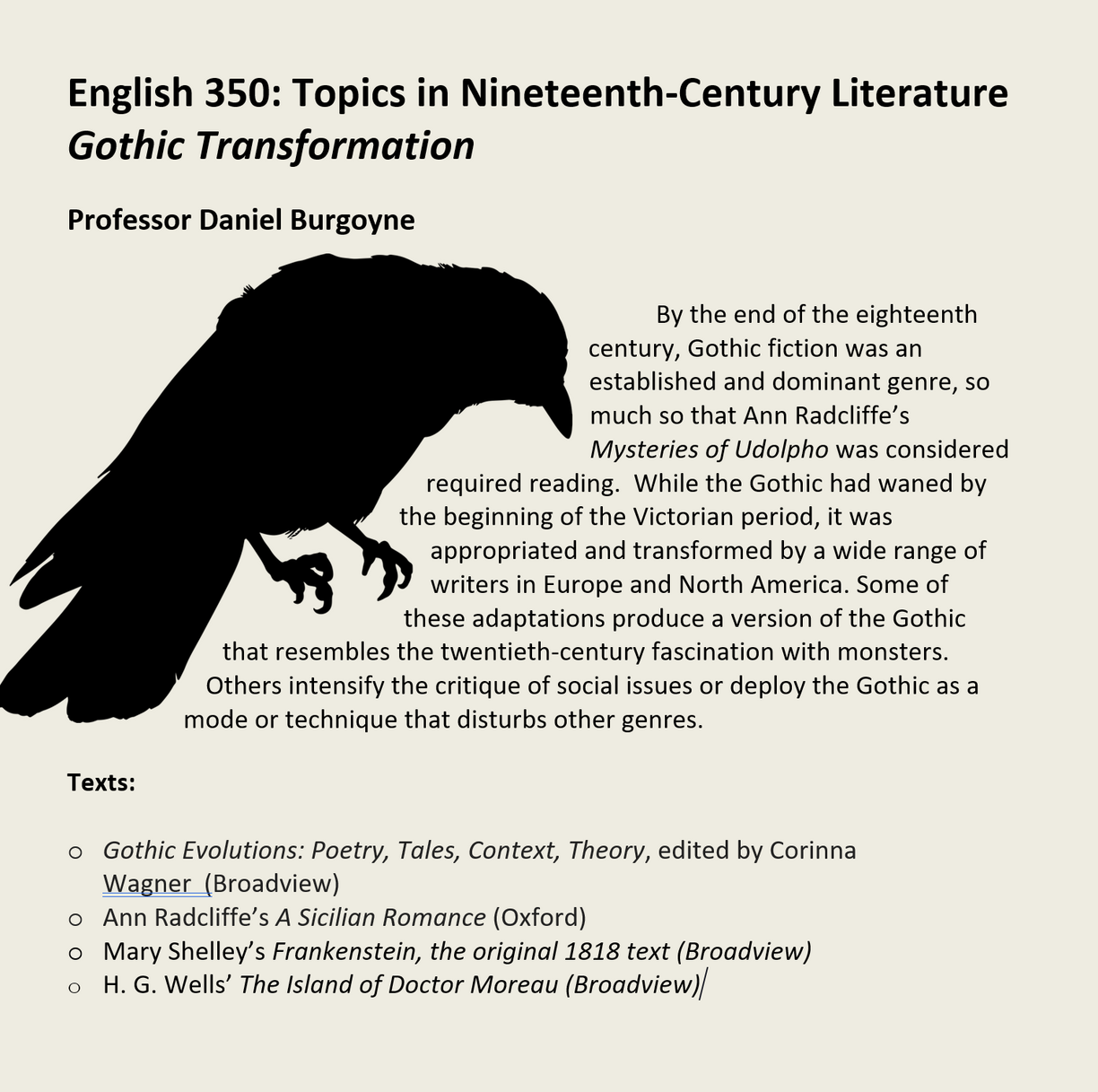
ENGL 392: Topics in Digital Humanities
Professor Paul Watkins
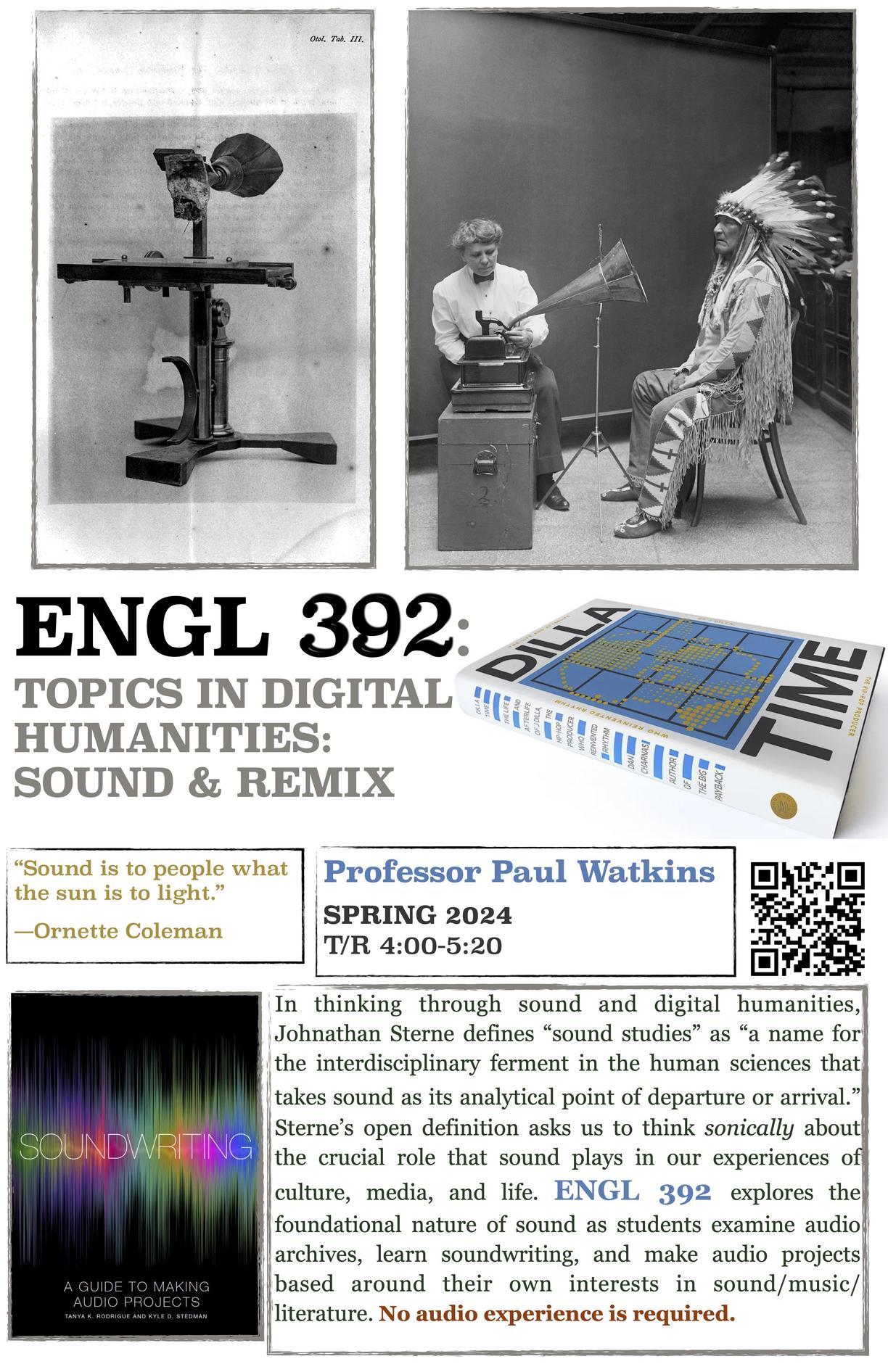
ENGL 398: Film Studies
Professor Clay Armstrong
A study of narrative developed for film. Discussion may involve analysis of genre, plot, characters, themes, symbolism, cinematography, mise-en-scène, editing, sound, acting, and ideologies. The course may be structured as a broad survey or with a focus on a single director or theme.
ENGL 480: Research Methods
Professor Theo Finigan
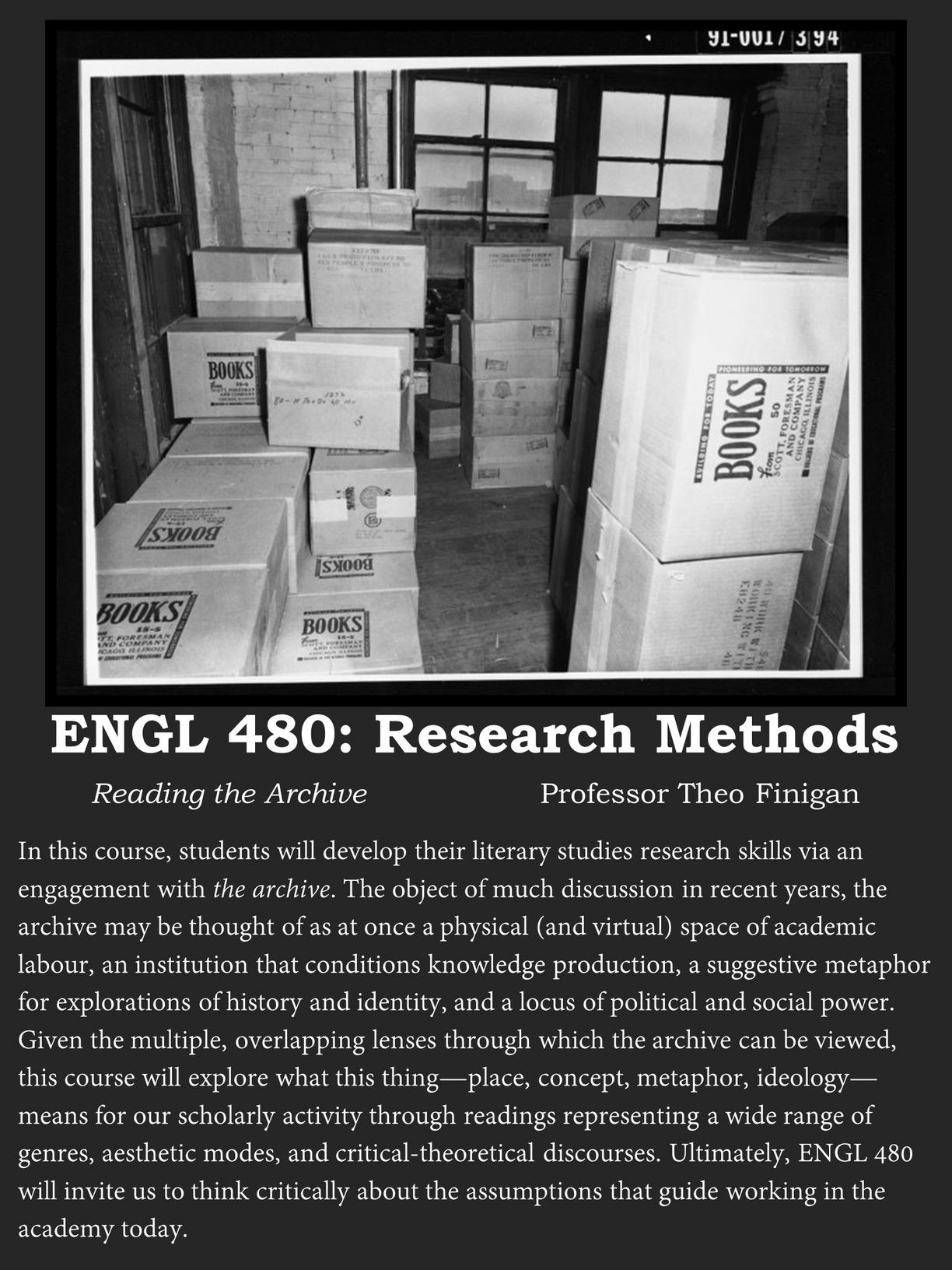
Generic course descriptions for all English courses are in the VIU Program and Course Calendar.
